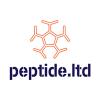H(2) and gut bacteria - Its a complex relationship to say the least.
The second enigma is intestinal production of hydrogen gas in rodents and humans. Although no mammalian cells can produce hydrogen endogenously, hydrogen is produced by intestinal bacteria carrying hydrogenase in both rodents and humans. We humans are able to make a maximum of 12 liters of hydrogen in our intestines [68, 69]. Specific-pathogen-free (SPF) animals are different from aseptic animals and carry intestinal bacteria that produce hydrogen. The amount of hydrogen taken by water or gas is much less than that produced by intestinal bacteria, but the exogenously administered hydrogen demonstrates a prominent effect. In a mouse model of Concanavalin A-induced hepatitis, Kajiya and colleagues killed intestinal bacteria by prescribing a cocktail of antibiotics [43]. Elimination of intestinal hydrogen worsened hepatitis. Restitution of a hydrogenase-negative strain of E. coli had no effects, whereas that of a hydrogenase-positive strain of E. coli ameliorated hepatitis. This is the only report that addressed a beneficial effect of intestinal bacteria, and no human study has been reported to date. Kajiya and colleagues also demonstrated that drinking hydrogen-rich water was more effective than the restitution of hydrogenase-positive bacteria. If intestinal hydrogen is as effective as the other hydrogen administration methods, we can easily increase hydrogen concentrations in our bodies by an
 α-glucosidase inhibitor, acarbose [70], an ingredient of curry, turmeric [71], or a nonabsorbable synthetic disaccharide, lactulose [68, 72, 73]. The enigma of intestinal bacteria thus needs to be solved in the future.
α-glucosidase inhibitor, acarbose [70], an ingredient of curry, turmeric [71], or a nonabsorbable synthetic disaccharide, lactulose [68, 72, 73]. The enigma of intestinal bacteria thus needs to be solved in the future.
http://www.ncbi.nlm....les/PMC3377272/
Here's the patent for the Hydrogen water supplement:
Compositions and methods for producing stable negative oxidation reduction potential inconsumable materials
https://www.google.c...ved=0CB8Q6AEwAA
Edited by Metagene, 07 November 2014 - 04:10 PM.




































































